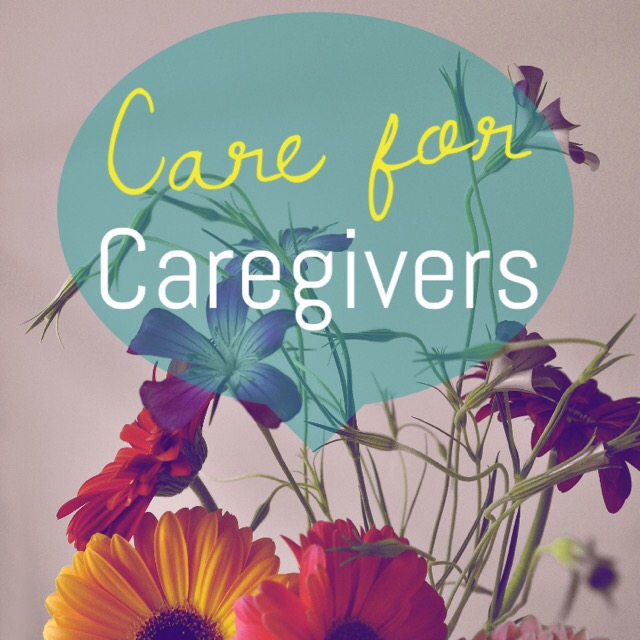
Care for Caregivers
By Cathy Downen, MA, MA, PLPC
Karen doesn’t know exactly when she got so tired. When she invited her elderly mother into her home to live with her family, she was optimistic about dealing with the challenges of her mother’s Alzheimer’s symptoms while working from home and keeping up with the needs of her husband and two children. But now she feels alone and discouraged. She has missed many of her kids’ events, her career has stagnated, her friendships have been neglected, and she hasn’t been to the doctor for herself in years. She wishes her life were different, but she’s exhausted and doesn’t think she has any options. Karen is a classic example of a caregiver suffering from compassion fatigue — neglecting appropriate self-care because of prioritizing the needs of others.
According to the Pew Research center, approximately 39% of the adult population in the United States is currently serving in a caregiving role for those who are elderly, ill, or disabled (Reuters, 2013). The plight of caregivers recently attracted national attention when Leeza Gibbons won Celebrity Apprentice while raising funds for her charity, Leeza’s Care Connection, but concern for caregivers is not a recent development. In 1987, the Rosalyn Carter Institute for Caregiving was established, and its well-researched report “Averting the Caregiving Crisis: Why We Must Act Now” was published in 2010 and updated in 2012 [http://www.rosalynncarter.org/caregiving_crisis/]. The former First Lady said, “Caregiving is a universal subject . . . There are only four kinds of people in this world: those who have been caregivers, those who currently are caregivers, those who will be caregivers, and those who will need caregivers” (1997). Due to continuing advances in medical care, life expectancy continues to rise, along with a corresponding rise in the need for caregivers. For many people, the decision to take on the responsibility of providing care for a loved one in need can be heart-wrenching and life-changing. Trying to balance the demands of caregiving with other responsibilities and stresses may create a load too heavy to bear, and many caregivers exist in a state of fatigue that calls to mind the proverbial camel on the verge of collapsing under that final straw.
In the Old Testament, Cain asked a question that has echoed down through the ages and is still relevant today:
The weight of responsibility associated with this deceptively simple yes-or-no question can cause a struggle in the hearts and minds even of devoted Christians. Paul reminds us in his letter to the Galatians to
Jesus Himself tells us in the Gospel of Matthew the value He places on our care for others:
God takes it personally when we sacrifice for the benefit of others, and He established the gold standard when He sacrificed His Son for our salvation.
Trying to live up to this standard of care, however, can create a great deal of pressure on caregivers, and sometimes the constant sacrifice of always putting the needs of another first can result in depletion of mind, body, and spirit. Caregivers are at heightened risk for depression, financial hardship, and loss of their own physical health. Constant caring for another is time-consuming and can make finding time to meet one’s own needs especially challenging. Christians, in particular, may feel obligated to put the needs of the one they are caring for above their own needs, based on their interpretation of scripture. For example,
Did you catch the words in bold? A closer look at this passage will reveal that we are actually instructed to tend to our “own interests” in addition to the interests of others.
Here’s another Bible passage to consider:
Notice that Jesus instructs us to love our neighbor as ourself. Without love and care for ourselves, it is much harder to have anything left to give to others. For this reason, airline safety instructions include the mandate for passengers in an emergency situation to first put on their own oxygen masks before helping others. If we are incapacitated, we are unable to help anyone else.
Let’s also take a close look at the parable of the Good Samaritan. Jesus used this story of a man attacked by robbers and left severely wounded at the side of the road to help us understand what it means to be a good neighbor and to be discerning in our level of care for others:
Notice that the Good Samaritan is first moved by compassion for his fellow man: “His heart went out to him.” A heart of compassion and genuine caring for others is the hallmark of a good caregiver. The Good Samaritan provides what immediate care he is able to give: “He gave him first aid, disinfecting and bandaging his wounds.” The Good Samaritan uses the resources he has available to provide assistance: “he lifted him onto his donkey.” At this point, the Good Samaritan has reached the limit of what he personally can provide, and he needs to enlist the help of others. He brings the man to an inn where he can be made comfortable. In this case, the inn is a more appropriate place to bring the man than the Samaritan’s own home. He stays the night to make sure the man will be well cared for, but then he leaves the man in the care of the innkeeper. He pays for the man’s care, but he allows himself to resume his trip and tend to his originally planned business. He stays in touch and makes arrangements for the man’s continued care, agreeing to continue to pay for whatever he needs, but he no longer obligates himself to tend to the man personally. The Good Samaritan demonstrates the principle of balance in caring for another while still managing his other responsibilities.
Every caregiving situation is different, and every family is different. The level of care one individual is capable of providing may be very different from what another can offer. Some caregivers have a good extended support system; others have fewer resources available to them. Caregivers who have reached the end of their personal capacity need to be aware that there are many organizations that have been formed specifically for the purpose of providing support for caregivers; a quick Google search will turn up many of them. Individual communities may provide resources and respite programs that can offer assistance. Many support groups are available. Local churches and Stephen Ministry organizations may be able to help. In addition, the listening ear of a compassionate counselor may be just what’s needed to provide relief for a caregiver’s burden.
Jo Horne, author of the book Caregiving: Helping an Aging Loved One, created “A Caregiver’s Bill of Rights” as a reminder to those who care for others that they must first care for themselves.
A Caregiver’s Bill of Rights
By Jo Horne (Author of Caregiving: Helping an Aging Loved One)
I have the right:
- To take care of myself. This is not an act of selfishness. It will give me the capability of taking better care of my loved one.
- To seek help from others even though my loved ones may object. I recognize the limits of my own endurance and strength.
- To maintain facets of my own life that do not include the person I care for, just as I would if he or she were healthy. I know that I do everything that I reasonably can for this person, and I have the right to do some things just for myself.
- To get angry, be depressed, and express other difficult feelings occasionally.
- To reject any attempts by my loved one (either conscious or unconscious) to manipulate me through guilt, and/or depression.
- To receive consideration, affection, forgiveness, and acceptance for what I do, from my loved ones, for as long as I offer these qualities in return.
- To take pride in what I am accomplishing and to applaud the courage it has sometimes taken to meet the needs of my loved one.
- To protect my individuality and my right to make a life for myself that will sustain me in the time when my loved one no longer needs my full-time help.
- To expect and demand that as new strides are made in finding resources to aid physically and mentally impaired persons in our country, similar strides will be made towards aiding and supporting caregivers.
Proverbs 11:25 reminds us that “whoever refreshes others will be refreshed” (NIV). Self-care for caregivers is not a luxury, nor even an option, but an absolute necessity. It’s important for every caregiver to recognize that they are as deserving of care as anyone else. Compassionate counselors at Agape Christian Counseling Services can help them learn to find a better balance in meeting their own needs while caring for others.






One Comment
Nancy
Liked the caregivers bill of rights!